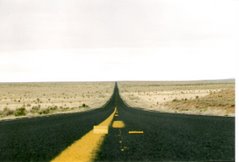
This post is in response to the race post just below. I decided to do a new post because 1) it gets complicated to read the long comments page, and 2) I feel that my post will stray away from the previous post enough to justify a new one. 3) It is always nice to see a new post.
Clearly there are many factors involved when looking at race and how it affects different people within society. It is difficult to narrow down the key issues and where the true problems exist; however, it is no doubt important to make an attempt, as it is clear that many people are still bothered by the apparent discrimination that exists and whether it truly hinders one’s ability to function within society as equally as someone with less discrimination.
So, it would appear that from the last post on race, that there are essentially two arguments: There is discrimination in society, and this discrimination causes those who experience said discrimination to be at a disadvantage compared to those who experience less discrimination. Or, there is the argument that there is discrimination; however, this discrimination does not cause the person who experiences said discrimination any overall disadvantage within society, and they have just as much opportunity as anyone else to achieve success. Along with this idea, the problem is not with discrimination, but the problem can be found in the cultural aspects that are attributed to those who are less affluent within society.
Because we have eliminated the option that black culture in general is not simply the problem, whereby it was pointed out that the black culture within urban areas is far more likely to experience problems and poverty than African immigrants, it is then necessary to consider why black culture within the urban setting does in fact experience more problems--that is single families, lower incomes, higher drug use, and bla bla bla. Looking at the broader social contexts that contribute to the urban culture, it is clear that many factors play a role in shaping this urban culture—race, gender, family, education, employment, and so on and so forth. I think it is difficult to really attribute the whole problem of race and the underlying problems that are associated with it simply to the family unit and the production of income within that unit. Clearly income plays a role, but if there is in fact discrimination that leads to one person of one race being able to earn more income than another person of a different race, then that would simply place one person at a clear advantage over the other.
Although I am quite certain that I do not have the means to figure out a vast history of inequality, I believe that I can narrow it down to a certain degree. John has pointed out that income is a clear factor, and I would agree with this. However, I think that black people are at a clear disadvantage and I believe Micah has pointed this out quite well. I will use a simple analogy in order to help illustrate my point and add to what micah has suggested.
Using a capitalist argument (uh oh, here comes more of that socialist propaganda) in order for competition to be fair, protectionist policies are not acceptable. Looking at urbanized black communities, they are essentially facing the same struggle as businesses that are competing against those with the advantage of protectionist policies, in that they do not have the same funding or support to fall back on. Ok, so I think my simple analogy wasn’t very simple at all, but perhaps with some thought someone might be able to see the relevance. In short, however, black people who are born into a poor family, who grow up within a cycle of poverty and despair, are certainly going to experience this disparity much easier than the white boy that lives a sweet, little, nerfy life. Sitting on his biscuit, never having to risk it.
I also feel that there is even a clear cut example of discrimination within the current presidential race (no pun intended). The fact that so many people have resorted to identifying Barrack as “Barrack Hussein Obama,” should indicate that there is indeed discrimination. The addition of his middle name no doubt attempts to depict him as someone that the country cannot trust, which in the end places him at a clear disadvantage to getting the job compared to someone without such an untrustworthy name.
Really, I could go on and on about the broader social contexts that play a role in creating a disadvantage for blacks compared to whites. But I feel that I have easily said too much as it is. In closing here is a
link to a recent study where it shows that the majority of Americans, subconsciously, dehumanize black people by associating them with apes. Clearly if this is true, this would greatly affect how black people function in a society that so easily dehumanizes them.
In the end, I actually agree with John over the fact that Barrack will not be able to unify the country. For me though, it has more to do with the fact that I believe economics does play a key role in the development and equality of race, and Barrack clearly represents the status quo on so many issues that are important to not only the economy in the US, but also abroad.


